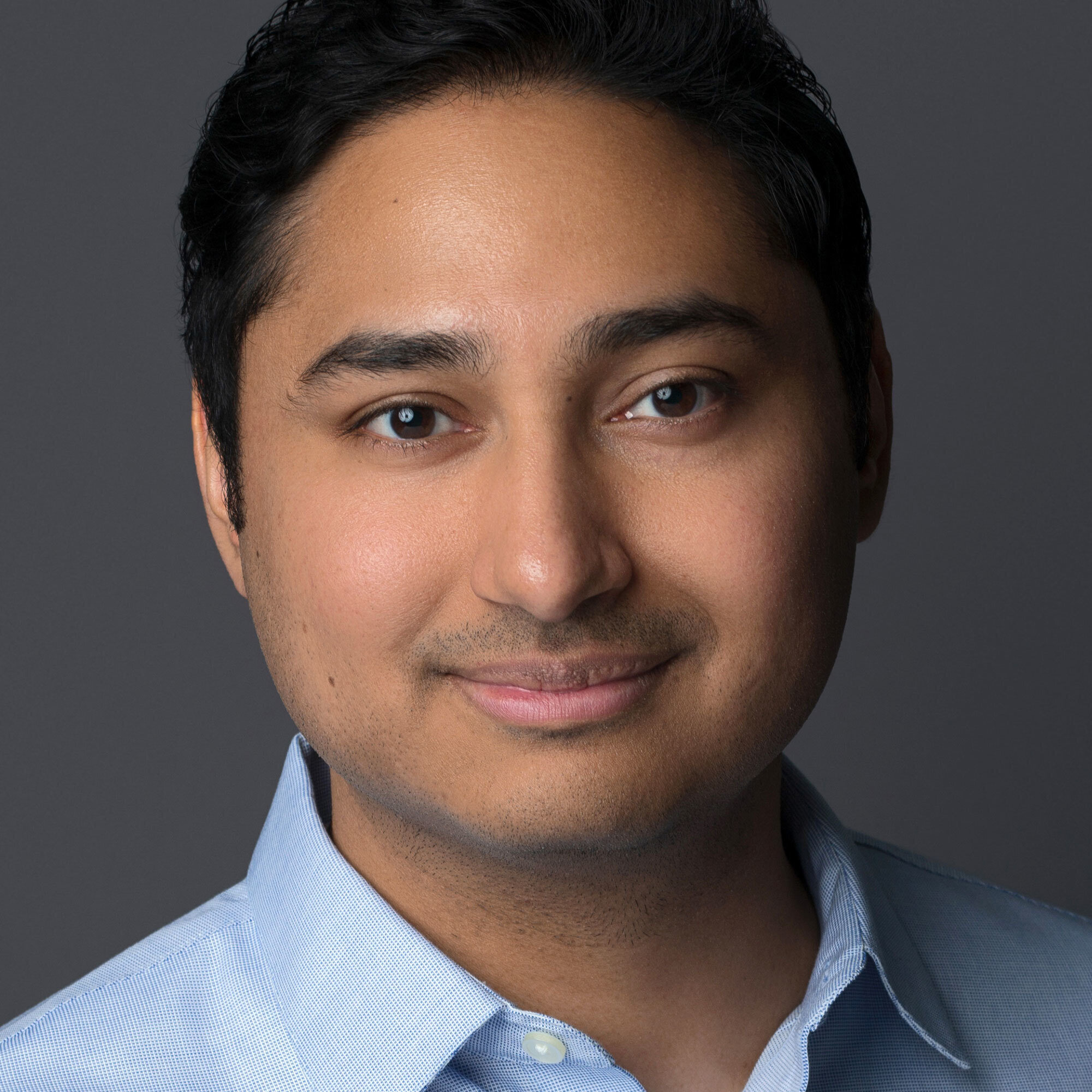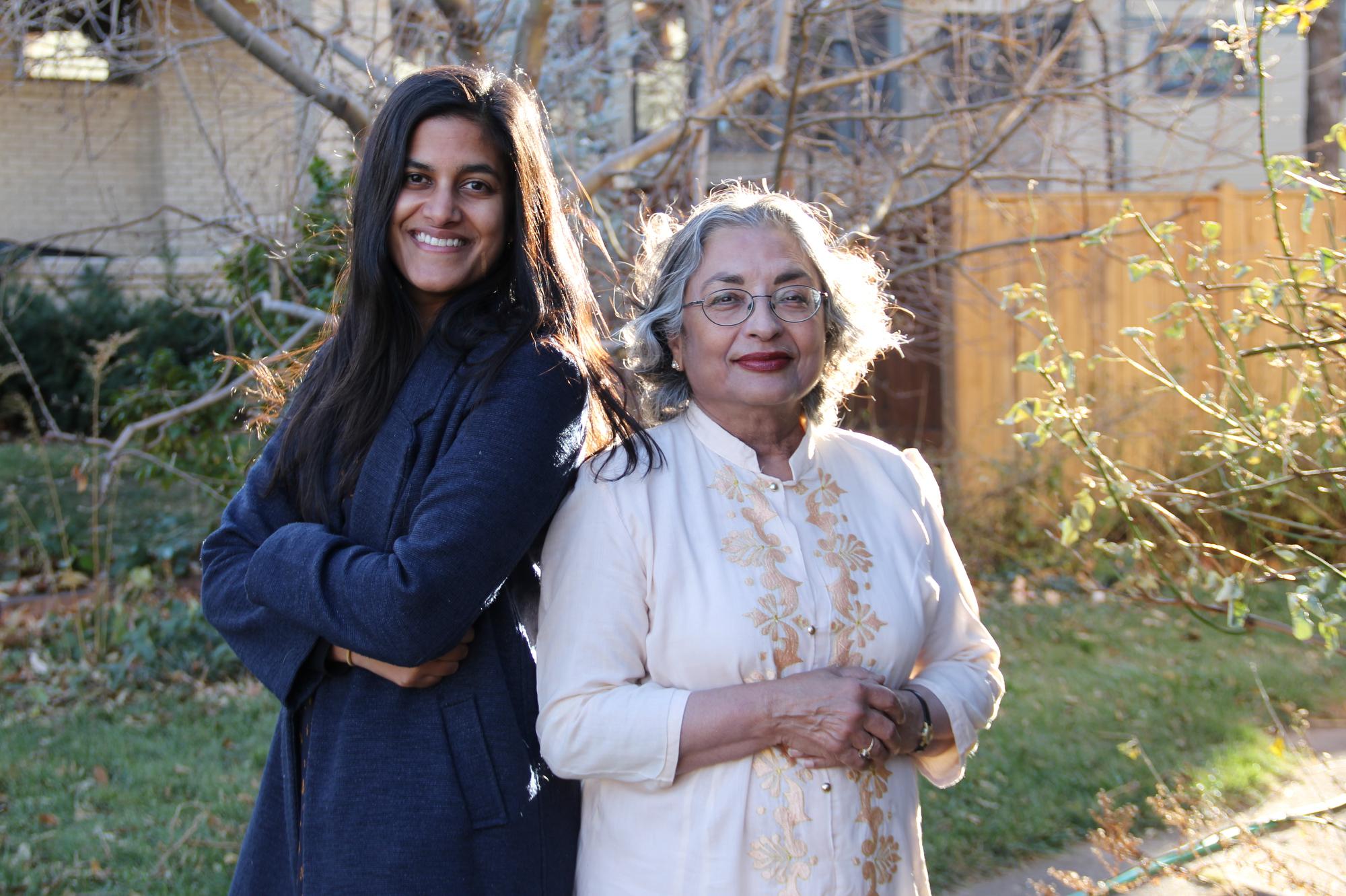
Maha Mahalingam moved from South India to the United States in 1980 and began graduate school. She was only 22 at the time and eventually moved to Colorado, where she settled with her family in Aurora.
When Mahalingam heard about Shyamala Gopalan Harris, her story sounded familiar. Gopalan Harris was the mother of vice president-elect Kamala Harris, and she moved from Chennai, India, to Berkeley, California, at the age of 19.
“To think of that 19-year-old, coming with so much determination and courage, seeking a new life and a new land — and when I even think of her marching in Berkeley for social justice — I feel a sense of solidarity with this woman,” said Mahalingam, 62, a social worker currently pursuing her Ph.D.
Indian Americans, the largest subset of South Asian Americans, are only about a half percent of Colorado’s population. But nationwide, Asian Americans as a whole are the fastest-growing racial or ethnic group of voters in the country. Here in Colorado, South Asian voter engagement is finally catching up. Harris, whose father is from Jamaica, will be the first Black and Indian American — and woman — vice president in United States history. Spurred on by her historic win, some hope representation in state and local offices in Colorado can also accelerate now.
“I’ve grown up just not seeing a lot of South Asian representation in the media, in politics anywhere, and to see that happening in the White House,” said Indra Raj, 34, who lives in Boulder and is the music director at community radio station KGNU. “The fact that the term ‘South Asian’ is now something people understand is kind of a big deal.”
Harris’ political run reminds Raj of her own mother, Jyotsna Raj, 69, who ran for Boulder City Council in 2009 and 2015 but lost both races.
“I didn’t make it, but it allowed me to really understand my community, and to get very engaged with ... its problems and its issues,” Jyotsna said. “And I think I really enjoyed it.”
For Jyotsna Raj, Harris’ win is an encouragement for others to run.
“What I hope to see from it is an even greater engagement of people of Indian origin in politics here in America. When I came to live here in 1976, Indian immigrants like us were more focused on their jobs, their careers, establishing themselves in this country, and they were fairly apolitical. And I think it shows the maturing of our group that we have now entered politics.”
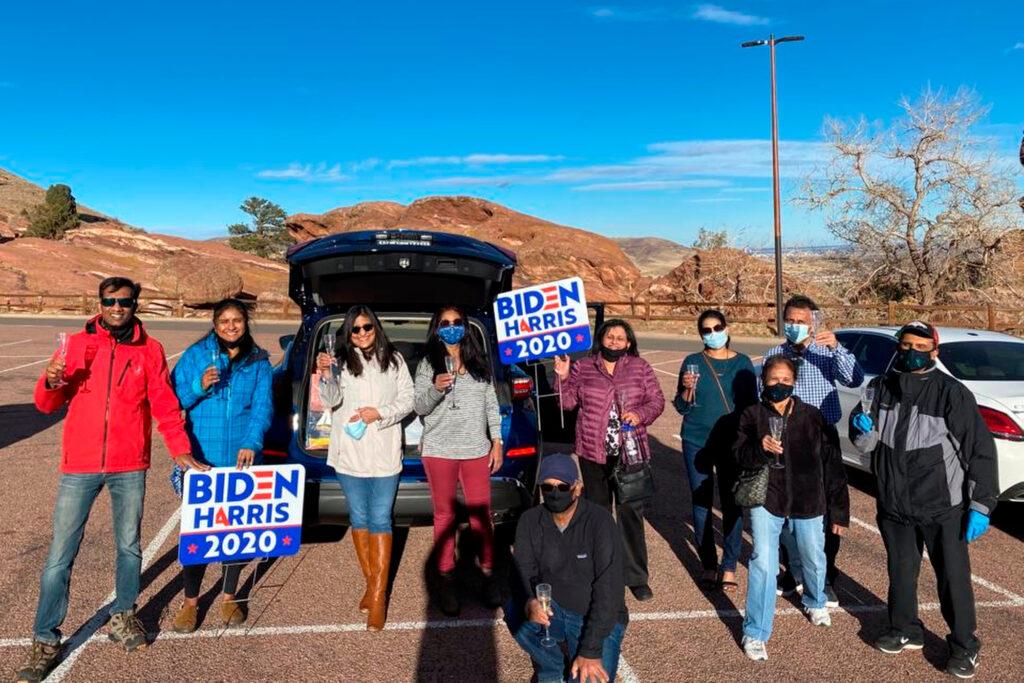
That’s a sentiment echoed by Janak Joshi, a Republican and Colorado Springs physician, who was the first person of Indian origin in the state legislature. Beginning in 2011, Joshi served the 14th and then 16th District until he lost reelection in 2016. He said it has been more unusual to see first-generation South Asian Americans like himself run, compared to their second-generation kids.
“The first generation of immigrants — we are just too busy trying to put our roots down,” Joshi said. “Most of us are busy with our professional life. We’ve got kids and are trying to give them a good education. We’re also trying to support our families in India. So we don’t have time for politics.”
But like Joshi, PK Kaiser, Arapahoe County’s Democratic assessor, challenged that narrative as a first-generation American. Born in India and raised in Pakistan, Kaiser ran six campaigns for different public offices in metro Denver before he finally won the assessor seat in 2018.
- In Adams County, Voters Went Big For Biden, But Also Hung On To Their Republican State Senator. Why?
- ‘A Great Outcome For Colorado’: Gov. Polis Sees Priorities Pass At The Ballot Box
- Pueblo Joins National Roster Of Counties That Voted Obama-Trump-Biden
- Colorado 2020 Voters Funded Paid Leave And Preschool. They Also Cut Their Taxes. What Gives?
“My example in Colorado is one of the unique examples,” Kaiser said. “I’m not here because I look like a particular race, where I came from, or what language I speak. But my success here and people like me — their success depends on how hard they work towards their goals.”
The Democratic Party and its allies are among those actively trying to get more Asian Americans into politics in Colorado.
“I’d like to see more engagement from the South Asian community. That is definitely lacking,” said Susmita Saha, vice-chair of the Colorado Democratic Party’s Asian American Pacific Islander Initiative. “When I look at New York or New Jersey, it’s unbelievable in the involvement of the South Asian community. And I really wish that for the state of Colorado.”
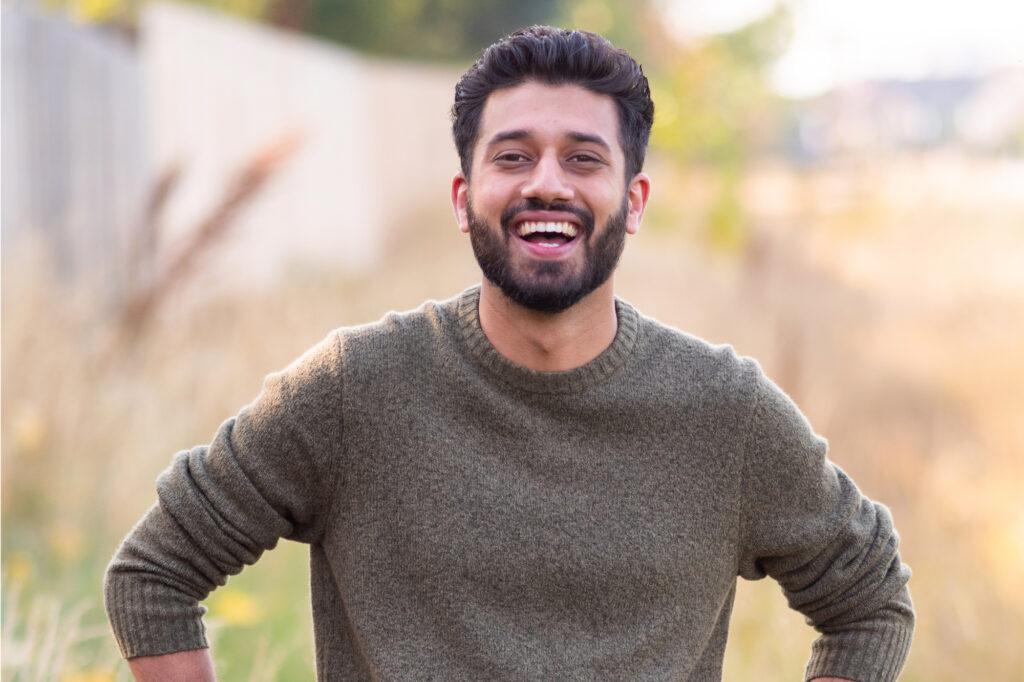
As Joshi suggested, the biggest opportunity might be in the younger generation.
JD Mangat, whose family is from Punjab, has served in his hometown city council in Lafayette for almost three years. A University of Colorado Boulder graduate, he teaches in the Boulder Valley School District and got involved in the city council when he was only 22.
“A lot of South Asians are expected to be a doctor or a lawyer … Or a business owner, right?" Mangat said. "I think it takes a little bit of time for our community to realize how influential and how important these positions are and how there’s more to your contribution to society aside from the prestige of your job or the money you make. I think that’s slowly becoming a lesson for our older generation.”
This election season, the older generation got more involved in voter outreach than ever before, urged on by groups like They See Blue. It’s a national organization that encourages South Asian Americans to help elect Democrats.
Before the election, the organization found that only 37 percent of South Asian Democrats were voting in Colorado. So they amassed a volunteer army of aunties and uncles — along with their kids — to call Coloradans and write letters, particularly to young or inactive voters. Some volunteers even chatted with voters in native Indian languages.
“I think because South Asians are reaching out to fellow South Asians, there was already a certain amount of trust,” said Indira Duggirala, one of the Colorado group’s organizers. “They asked a lot of questions, they often would say, ‘I have been living here for 40 years, but nobody has ever called me from either party.’”
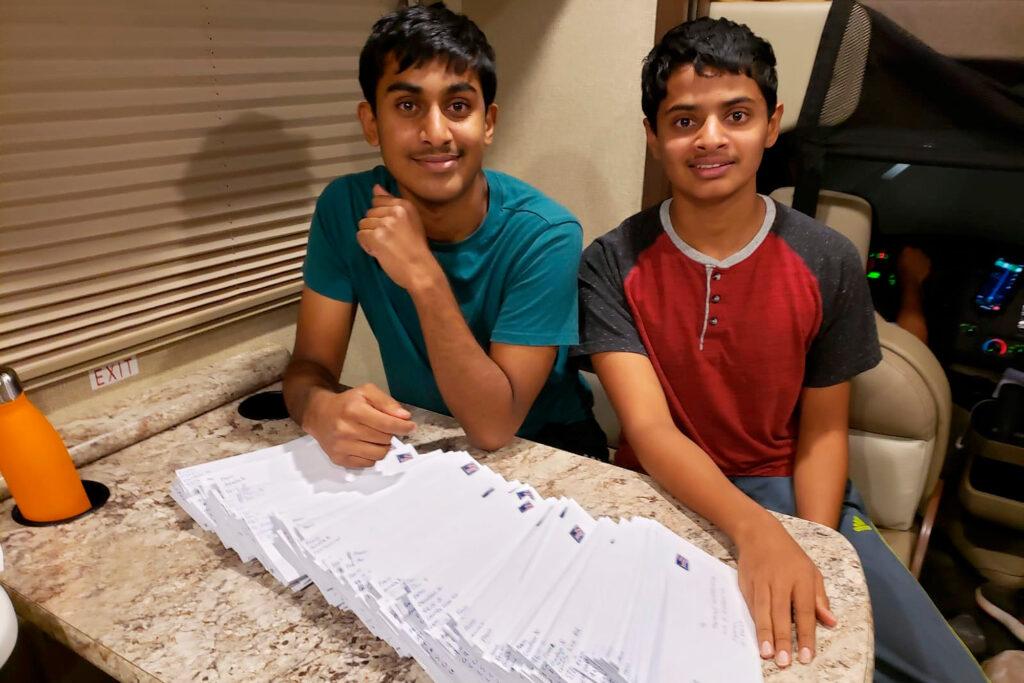
The group is now planning outreach to about 10,000 South Asians in the state who are still not registered to vote.
“I think that we’re going to have such amazing growth in our community, because it’s thirsting for it,” said Radhika Nath, the co-founder of the Colorado chapter of They See Blue.
Organizers and party officials hope to keep that momentum going by keeping South Asian Coloradans engaged. Colorado Democrats’ Saha believes Harris’ win sends a symbolic message to Colorado leaders: “‘Hey, [the] South Asian population does exist. Yeah, we have different names that are not Americanized, but please recognize us. We are a voice.’”
Vignesh Ramachandran is co-founder of Red, White and Brown Media and a freelance journalist covering South Asian American communities. He’s on Twitter at @VigneshR.
